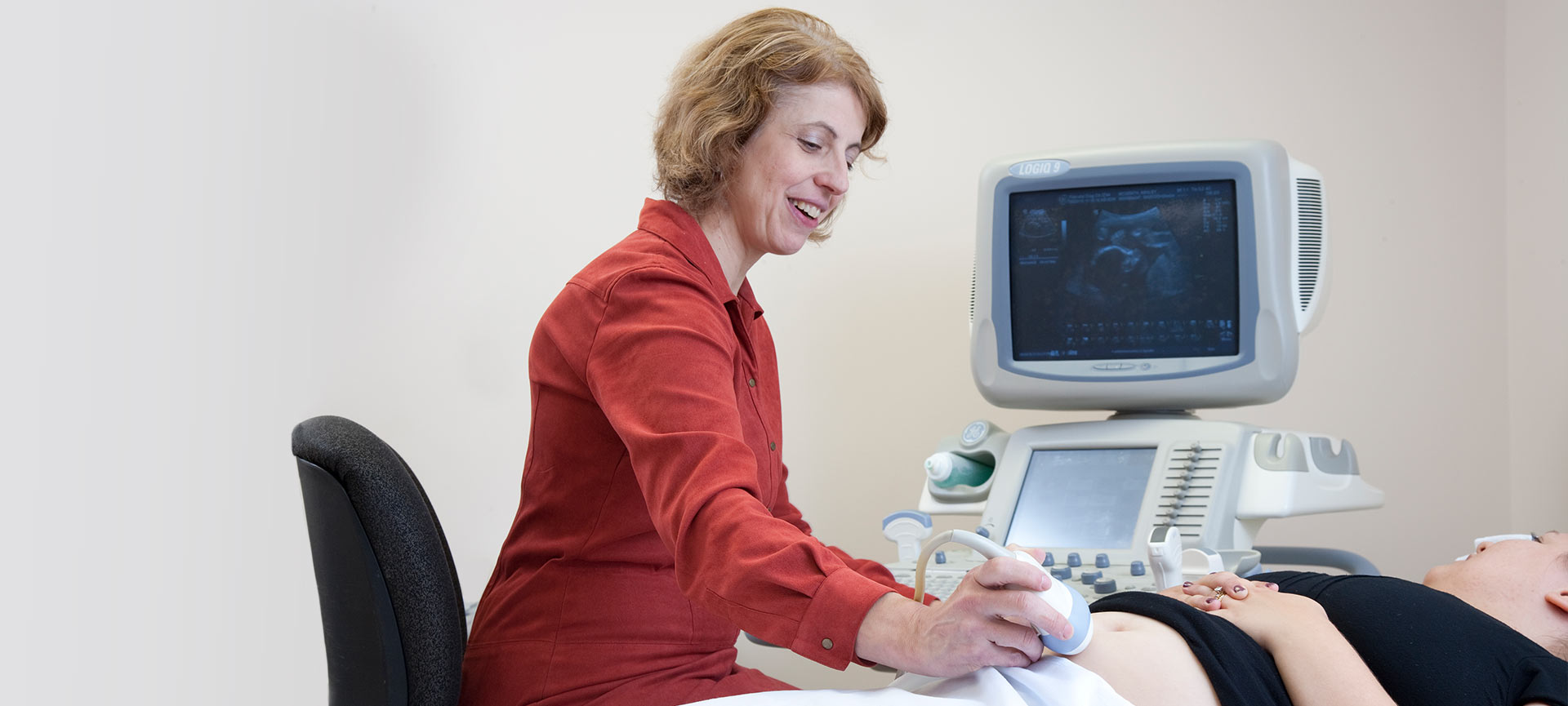Miscarriage - Prenatal Genetics
Miscarriage
Miscarriage is the loss of a pregnancy before 20 weeks gestation. There are many reasons for pregnancy loss. In many cases, no cause for past miscarriage(s) is identified. Most causes of miscarriage are not under our control. It is important to remember that women who have a miscarriage(s) still have a good chance for a successful future pregnancy.
Genetic Causes
Fetal Chromosomal Abnormalities:
Chromosomes are the inherited structures in the cells of our bodies. A baby has two copies of every chromosome — one inherited from the mother in the egg, and the other inherited from the father in the sperm. Each chromosome holds hundreds to thousands of genes, which are responsible for growth and development. Approximately 50% of first trimester miscarriages are due to a chromosome abnormality in the fetus. An extra chromosome or a missing chromosome can cause miscarriage, usually in the first or second trimester of pregnancy, or can lead to a child with learning difficulties or intellectual disability and birth defects. For losses that occur in the second trimester, additional testing is available which can detect smaller changes in the chromosomes, such as an extra or missing part of a chromosome. Once a couple has had a pregnancy affected by a chromosome abnormality, there is a slightly greater chance for their future pregnancies to be affected with chromosome abnormalities. In some cases prenatal diagnosis, such as chorionic villus sampling (CVS) or amniocentesis, are offered in future pregnancies.
Inherited Chromosomal Rearrangements:
An inherited variation with the chromosomes can also cause miscarriage. A parent can have a rearrangement of his or her chromosomes, in which the chromosomes are structured differently. The parent should have no health problems because, although his or her chromosomes are rearranged, they are balanced - that is, there are no missing or extra pieces of the chromosomes. However, because of the way the chromosomes are passed from parent to child, the baby may inherit extra or missing pieces of a chromosome. Extra and missing genetic material lead to "chromosomal imbalance" and can cause intellectual disability and birth defects in a liveborn or cause a miscarriage. For couples who have had multiple miscarriages, the chance that one of the parents has a chromosomal rearrangement is approximately 3-6%. While parents who carry chromosomal rearrangements are at increased risk to have further miscarriages or babies born with health problems, they can also produce healthy children. Chromosome studies can be performed on parents' blood to see if either parent is a carrier of a chromosomal rearrangement.
Genetic Variant:
Another genetic cause of miscarriage is a change (variant) in one or more genes on the chromosomes. This can cause specific genetic diseases or birth defects. Disease-causing variants can occur spontaneously in pregnancies or can be inherited from parents who themselves are healthy. Birth defects associated with these conditions can sometimes be detected during pregnancy by a sonogram. If there is a history of a specific disorder in a parent or family member, single gene disorders can be tested for prenatally in some cases.
Maternal Health Issues
Other reasons for pregnancy loss are related to maternal health. An abnormally shaped uterus can lead to pregnancy loss. Health problems such as hormonal imbalance, poorly-controlled diabetes, lupus and other immune system abnormalities, kidney and heart disease, and hypertension can create difficulties in carrying a pregnancy to term. Your doctor may order blood tests and/or a sonogram to evaluate for these problems.
Environment:
Another cause of pregnancy loss is an environmental exposure during pregnancy. For example, exposure to certain medications, drugs, alcohol, or high levels of radiation can lead to miscarriage. Infections can also cause miscarriage. The risk of miscarriage may be greater in women who smoke.
Remember, even when repeated miscarriages occur, there is a good chance of success in a subsequent pregnancy.
